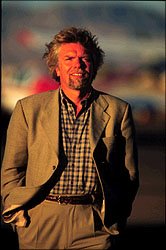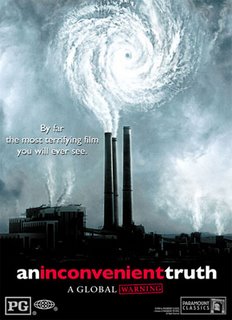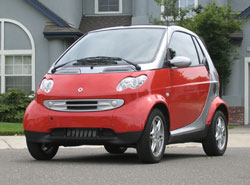
Richard Branson. SIR Richard Branson, that is, British founder of Virgin records, and everything else since that's started with "Virgin" (including an airline, book publishing company and fitness clubs).
It's rare that you hear of a record company executive (or in more recent year, airline excutive, etc) make the news. Or at least for the reasons that this guy has. He's tried to circumnavigate the world in a hot air balloons and other such stunts.
He most recently made the news for donating (sort of) a cool three billion towards the fight against global warming.
The article below, from Grist Magazine, goes into the donation a little bit deeper though, illustrating that the act may be entirely altruistic. It will no doubt be more than welcomed by treehuggers though (and those still in training).
Richard Branson, founder and chair of the British conglomerate Virgin Group, has racked up more than his share of high-profile high jinks over the years. Among them, signing the notorious Sex Pistols to his young record label, dangling nearly nude over Times Square, and botching numerous transoceanic hot-air balloon expeditions, necessitating rescue by helicopter. But the most audacious move of all may have been his declaration last week that he'll dedicate $3 billion to helping solve the climate crisis.Oh, and his current little pet project will no doubt be of interest to stargazing Mrs THIT. Branson wants to enable "regular folks" to go into space. Wealthy regular folks, that is...
The largest-ever private sum directed to the cause, Branson's pledge accounted for more than a third of the total $7.3 billion in commitments reaped at the Clinton Global Initiative gathering in New York. That's where Bill Clinton convened movers, shakers, and big spenders to tackle what he calls the four most pressing global challenges of our time: poverty, health care, religious and ethnic conflict, and global warming.
Climate change drew in more dollars and cents than the other issues, and that's surely attributable at least in part to the fact that climate solutions -- be they energy-saving technologies or fossil-fuel alternatives -- have enormous profit-making potential. Companies like General Electric, which is pushing its climate-friendly innovations, know this full well. GE's "Green is green" motto says it all: Good environmental strategies fatten the bottom line.
Branson, for his part, has made no bones about the fact that his global-warming commitment is less a charitable endeavor than a brand-building, revenue-producing tactic. He plans to plow 100 percent of the proceeds from Virgin's airline and locomotive divisions -- an estimated $3 billion over 10 years -- into investments in clean technologies, such as wind turbines and cleaner-burning aviation fuel, with a heavy emphasis on developing "cellulosic" ethanol. Derived from agricultural waste and fast-growing crops like switchgrass, this biofuel produces virtually no greenhouse-gas emissions and is much-celebrated in environmental circles, although it has yet to be proved in the marketplace.
"I believe [cellulosic ethanol] is the future of fuel," Branson stated at the CGI, predicting, "Over the next 20 or 30 years, I think it actually will replace the conventional fuel that you get out of the ground."
Earlier this month, Branson established Virgin Fuels, which will channel $400 million into biofuels investments over the next three years. He has already sunk nearly a fifth of that into the California-based company Cilion, which is developing state-of-the-art ethanol plants and is bankrolled by dot-com-billionaire-turned-biofuels-evangelist Vinod Khosla.
Branson seems to be trying to do for biofuels what his company helped do for cell phones -- make a fringe technology into a mainstream phenomenon. Said Ashok Gupta, air and energy program director at the Natural Resources Defense Council, "A single investment like this can't solve global warming by itself, but it can help create trends that in turn move markets that produce solutions. From environmental, national security, and investment perspectives, Branson deserves big applause."
Media magnate Ted Turner agrees. He told The New York Times that Branson's commitment was a "brilliant move," adding, "He'll probably make more money off of this than he would off the airlines themselves."
Indeed, Branson has plenty of good business reasons to pursue this strategy -- not the least of which is a federal mandate in the U.K. requiring all fueling stations to get 5 percent of their fuel from renewable sources by 2010. There are also heaps of incentives in the pipeline for biofuel stations and production in the U.S. and elsewhere. But the biggest driver, says Branson, is the soaring cost of oil: "I've seen the price of my [aviation] fuel going up by nearly a billion over the last three years. It's painful for us as a business, it's painful for our travelers, but thank God it's happened ... [H]igh oil prices are what's been needed to actually wake up the world to deal with this [climate] problem."















